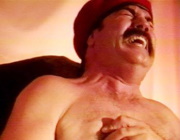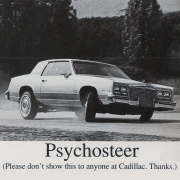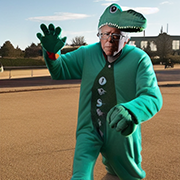|
You can make that argument; it's hard to quantify tens of thousands dead versus absolute repression. The point is that there tends to be a "North Korea really was a Communist paradise until recently  " attitude in these discussions that's really not true at all. It was a huge shithole right from the beginning. " attitude in these discussions that's really not true at all. It was a huge shithole right from the beginning.
|
|
|
|

|
| # ? May 21, 2024 23:39 |
|
NK didn't have to be a communist paradise for the South to be an unpleasant place to be in the 60s.
|
|
|
|
Also North Korea really was a decent place to live for a bit. Like sure not compared to the literal US but easily better than a lot of the Soviet Bloc, and better than South Korea. And then Kim Il Sung decided to make himself a god complete with ridiculous monuments and woops! Devoting way too much resources to that quickly results in a shithole.
|
|
|
|
Koramei posted:Keep in mind for everyone saying the North was more developed, the South was still probably a better place to live. The personality cult and secret police/ inminban and caste system all went into full swing in just a couple of decades. You might have had a better quality of life materially, but civil liberties were nonexistent right from the outset. I know little about the South, did their authoritarian spree end or is that still going strong? I mean, I could easily see why they'd feel the need to stay like that, what with having such a neighbour. Koramei posted:You can make that argument; it's hard to quantify tens of thousands dead versus absolute repression. The point is that there tends to be a "North Korea really was a Communist paradise until recently Just the mere idea that a communist paradise has ever existed in modern history is pretty funny 
Azran fucked around with this message at 00:47 on Aug 25, 2015 |
|
|
|
Azran posted:I know little about the South, did their authoritarian spree end or is that still going strong? I mean, I could easily see why they'd feel the need to stay like that, what with having such a neighbour. South Korea had a real democracy in 1960 and 1961, and then from 1987 on. Some people say 1948's election was free enough, but Syngman Rhee who was elected President that year quickly made himself into a strongman who brooked no real opposition. It was essentially a military dictatorship 1949-1960, and was just completely straight up military dictatorship 1961-1987, with the first post dictatorship president actually being a part of the junta that just ended.
|
|
|
|
Also I got to say Kim Il-Sung's memoirs are pretty funny and engaging to read. Korean War soldiers from the North are so verbose quote:Hero Kang Ho-yung was seriously wounded in both arms and both legs in the Kamak Hill Battle, so he rolled into the midst of the enemy with a hand grenade in his mouth and wiped them out, shouting: 'My arms and legs were broken. But on the contrary my retaliatory spirit against you scoundrels became a thousand times stronger. I will show the unbending fighting will of a member of the Worker's Party of Korea and unflinching will firmly plegdged to the Party and the Leader!' Nintendo Kid posted:South Korea had a real democracy in 1960 and 1961, and then from 1987 on. Some people say 1948's election was free enough, but Syngman Rhee who was elected President that year quickly made himself into a strongman who brooked no real opposition. Ah, I see. Interesting! Thanks  South Korean politics, unsurprisingly, look like kind of a hot mess. South Korean politics, unsurprisingly, look like kind of a hot mess.
|
|
|
|
It ended in the late 80s; Park Geun-hye or no, South Korea's changed a whole lot. It's kind of weird talking to Koreans today and realising just how different things were only a few decades ago though (often weird for them too; stuff like not being able to leave the country until the late 80s was surprising to a lot of people I asked about it).Nintendo Kid posted:Also North Korea really was a decent place to live for a bit. Like sure not compared to the literal US but easily better than a lot of the Soviet Bloc, and better than South Korea. And then Kim Il Sung decided to make himself a god complete with ridiculous monuments and woops! Devoting way too much resources to that quickly results in a shithole. You're focusing a lot on material wealth- that was better than the South's for sure (although from what I know at least, I might dispute it compared to most of the USSR). The personality cult had threads right from the end of the Korean war though, the register and caste system was very early too. A lot of it basically a continuation of the Colonial regime under the Japanese I guess. It wasn't just like one day and suddenly Hermit Kingdom, the place was poo poo to live in from the word go. like: Azran posted:In fact, a lot of Koreans who lived in Japan during the 50s and 60s decided to move back into North Korea both due to ideological reasons and because the South looked like a lovely place to be in. It's funny reading about those who had lucrative pachinko enterprises and decided to move back and donate as much as they could to the regime. this story (from Aquariums of Pyongyang right?) did not have a happy ending, and that goes for pretty much all Zainichi immigrants; they were warning people not to enter right from the start. I would not have wanted to live in either Korea for the first few decades of the Cold War but anyone who says the North was better is kidding themselves. Unless living in the most Orwellian society in history isn't an issue for you as long as you get food, education, and clothes twice a year I guess. Koramei fucked around with this message at 00:52 on Aug 25, 2015 |
|
|
|
Koramei posted:
But the thing is South Korea was also a horribly oppressive dictatorship, just with different things to say that would get you killed/abused by the crazy dudes in power. You didn't have any real freedom in either place, so why not have your no freedom in the place that has better material living standards? Of course the North ended up loving up severely by the late 70s as Kim Il Sung went all "it's time to build more monuments to me and start loving over trade partners so no one wants to deal with us!". I don't why you keep wanting to whitewash the military dictatorship of the south. You're acting like it's West Germany vs East Germany when it was really more like Nazi Germany versus East Germany. Nintendo Kid fucked around with this message at 00:57 on Aug 25, 2015 |
|
|
|
Koramei posted:It ended in the late 80s; Park Geun-hye or no, South Korea's changed a whole lot. It's kind of weird talking to Koreans today and realising just how different things were only a few decades ago though (often weird for them too; stuff like not being able to leave the country until the late 80s was surprising to a lot of people I asked about it). I'd say the personality cult dates from ever further back - back when Kim was one of two possible candidates (I'm blanking on the other guy's name, he got detained and murdered a little bit after the start of the Korean War), the Soviets started improving his image and "true Communist Korean patriot honest you guys" credential. Stuff like his son ditching the "Yuria" surname, drawing no attention to how much time he spent in Soviet Russia after getting pushed out of China by the Japanese, the exact account of how he got back to Korea, etc. I mean, yes, you start getting into "then he rode down into battle on top of his white horse, and defeated the whole American army" territory during the war itself but he was pretty much into the whole personality cult thing from the get go. When the war ended and he started purging "factionalist" elements, he was also getting rid of plenty of guys who knew what his actual role was and how important he had been in resistance against Japan in China. quote:(from Aquariums of Pyongyang right?) Nope, Under The Loving Care of the Fatherly Leader. At this point though, it wouldn't surprise me - it seems like it happened a bunch of times with different people.
|
|
|
|
Oh I need to read that, I'd been meaning to but it slipped by. And yeah, the story was similar in Aquariums of Pyongyang; the grandfather was incredibly wealthy from owning a casino and gave/ lost all his money to North Korea when he immigrated there. I thought Zainichi Koreans tended to be pretty heavily involved in criminal stuff in Japan (since other jobs are hard to come by for them) though so maybe it's not so surprising. Nintendo Kid posted:You're acting like it's West Germany vs East Germany when it was really more like Nazi Germany versus East Germany. are you serious right now Jesus loving Christ I didn't think I'd been whitewashing the South under Syngman Rhee but if that's your standard then sure why not. Koramei fucked around with this message at 01:43 on Aug 25, 2015 |
|
|
|
Koramei posted:are you serious right now Jesus loving Christ Yeah you are because you only talk about the lack of freedoms in the North? And also it wasn't just Rhee it was all the dumbfuck military dudes after him? South Korea had nothing to recommend it until North Korea started shooting itself in the foot in the mid-late 70s. I mean what's the other explanation for you going "but you're only focusing on material wealth"? There was no freedom in South Korea from ~49 to ~86, with the exception of the shortlived second republic.
|
|
|
|
There was more freedom. From what you're saying it sounds like you need to read more about North Korea, because it really is and always has been on another level. and alright, one very easy thing to name: emigration. Koreans left the South in absolute droves, both because it was a pretty awful place and also because they could. e: also the worst of it really was under Syngman Rhee. There was plenty wrong with people like Park Chung-hee but Bodo-league massacre style terror did not extend until 1987 geez. Koramei fucked around with this message at 01:36 on Aug 25, 2015 |
|
|
|
Koramei posted:There was more freedom. From what you're saying it sounds like you need to read more about North Korea, because it really is and always has been on another level. Being able to leave isn't much in the way of "freedom" in the country. The Nazis let people leave as well, at least before they invaded Russia. Seriously, stop and think a bit. Your defense of it being "more free" is just "you could escape the people who'd kill you if you could afford to do it". Tons of people couldn't. Not to mention plenty of people could get permission to leave denied capriciously.
|
|
|
|
I said it was more free in pretty much every way but you just ignored those posts so I gave you an easier example. I like your posts most of the time dude but people really aren't kidding about you sometimes huh. Let's end this one for now, and you really should read more about North Korea if you think it wasn't worse than the South.
|
|
|
|
wow spoiler alert dick
|
|
|
|
my bad man I'll fix that it's a good book
|
|
|
|
Koramei posted:my bad man I'll fix that it's a good book haha I was kidding you actually prompted me to order it off amazon. now I feel like an rear end in a top hat, I'm sorry.
|
|
|
|
Koramei posted:I said it was more free in pretty much every way but you just ignored those posts so I gave you an easier example. It wasn't though, it was a lovely military dictatorship on par with the worst of the African and South American right wing dictatorships. Why do you insist on whitewashing this? Or are you one of those idiots who thinks that Pinochet and the argentine junta were just great?
|
|
|
|
Nintendo Kid posted:It wasn't though, it was a lovely military dictatorship on par with the worst of the African and South American right wing dictatorships. Why do you insist on whitewashing this? Or are you one of those idiots who thinks that Pinochet and the argentine junta were just great? Jesus christ shut up and building statues doesn't tank a country's gdp for fucks sake.
|
|
|
|
Uncle Jam posted:Jesus christ shut up and building statues doesn't tank a country's gdp for fucks sake. It absolutely does when you start redirecting resources in your planned economy to statues and the like at a way higher priority then say, maintaining your electrical grid, or keeping up with routine infrastructure maintenance. Were you not aware of this?
|
|
|
|
Nintendo Kid posted:It absolutely does when you start redirecting resources in your planned economy to statues and the like at a way higher priority then say, maintaining your electrical grid, or keeping up with routine infrastructure maintenance. Were you not aware of this? quit statueshaming.
|
|
|
|
Azran posted:Also I got to say Kim Il-Sung's memoirs are pretty funny and engaging to read. Korean War soldiers from the North are so verbose Unfortunately he never took the grenade out of his mouth so all they heard of his oddly specific speech was "hnrgh fgnrg hngrh bflruf..."
|
|
|
|
Dusty Baker 2 posted:haha I was kidding you actually prompted me to order it off amazon. now I feel like an rear end in a top hat, I'm sorry. If I can add some recommendations, I'd say: The Orphan Master's Son for a non-historical book (that is, it's a novel. A bestseller as well), Nothing to Envy by Barbara Demick if you want to look at the more human side of the catastrophe and lastly Under The Loving Care of the Fatherly Leader for A LOT of background on the first two Kim regimes. I also love their weird rear end names. Nintendo Kid posted:It absolutely does when you start redirecting resources in your planned economy to statues and the like at a way higher priority then say, maintaining your electrical grid, or keeping up with routine infrastructure maintenance. Were you not aware of this? That has a lot more to do with the way Kim allowed its subordinates to play around with the, uh, relative wealth of the state. If you wanted to spend a holy fuckton of money on getting him a villa, you could. This only gets worse when Kim Jong Il gets in the picture, he loved to spend money both on himself and on others, even though he was a vindictive rear end in a top hat to most people he knew. And instead of some poo poo bronze statue (or, at most, a golden statue covered in bronze after the Chinese threw a hiss fit) I'd point at the many, many, MANY villas that were built for and by Kim, for Kim, his family and close allies.
|
|
|
|
In addition to the villas, I'm not sure, but I assume the massive hotels in Pyongyang were a bigger waste of resources than Kim statues. But moreover I was under the impression that the economy suffers from an approach where the Kims reject foreign aid and investment if it would mean any loosening of absolute control. Possibly related, but I believe that what economic good news there is regarding NK in the past 5 years or so still doesn't account for the slow, but steady crumbling of their infrastructure, for lack of the most basic maintenance for farms, factories, mines, etc.
|
|
|
|
Things didn't get really, really bad in North Korea until the 90's, though. There were a series of natural disasters that crippled the national infrastructure network, and without Soviet help, they couldn't rebuild it. Maybe they can finally start to recover if Jong-Un continues along a liberalization path, but it's not like this is the first time they've started something like this. They start it, let it go for a few years, then panic or get angry and shut it all down.
|
|
|
|
Nintendo Kid posted:It absolutely does when you start redirecting resources in your planned economy to statues and the like at a way higher priority then say, maintaining your electrical grid, or keeping up with routine infrastructure maintenance. Were you not aware of this? It has more to do with terrible economic choices in all sectors, like demanding local governments start profitable ventures without central support, but then sending those profits back to Pyongyang after doing the hard work. That won't ever produce anything. But I'm aware of fishmech's intellectual superiority in all aspects of human knowledge and for that I apologize for even replying to your post. TheBalor posted:Things didn't get really, really bad in North Korea until the 90's, though. There were a series of natural disasters that crippled the national infrastructure network, and without Soviet help, they couldn't rebuild it. While I was hopeful of the liberation path, it turned out that was the uncle shadow dictatoring the opening of the Chinese- Korean border to low and mid volume traders. Somehow Eun got hold of real power at some point and had him executed for letting too much cash go to Beijing and that was the end of that. It seems like Euns plan now is to try to do another planned economy but do-it-right-this-time, which is really disappointing.
|
|
|
|
Nintendo Kid posted:It absolutely does when you start redirecting resources in your planned economy to statues and the like at a way higher priority then say, maintaining your electrical grid, or keeping up with routine infrastructure maintenance. Were you not aware of this? Yeah, sensible countries use stone to conduct electricity
|
|
|
|
HorseLord posted:Yeah, sensible countries use stone to conduct electricity Oh cool here comes the guy who loves Stalin to justify Kim Il Sung's palaces.
|
|
|
|
Fishmech even went out of his way to be fair and say North Korea was fine before Kim Il Sung went insane, it's just that insane leaders lead to insane outcomes, juche or not.
|
|
|
|
Halloween Jack posted:Possibly related, but I believe that what economic good news there is regarding NK in the past 5 years or so still doesn't account for the slow, but steady crumbling of their infrastructure, for lack of the most basic maintenance for farms, factories, mines, etc. There's been any good news, at all? In the past five years its been solely bad, I can't think of a single good thing. There were no positive aspects in the currency re-denomination, the building spree has resulted in a bunch of time-bomb buildings that are going to fall over en masse (one already has,) there's been no expansion at Kaesong due to the typical bullshit associated with doing business with North Korea, no real development under tenders to Chinese companies (once again North Korea's penchant for fuckery undermined all of its natural advantages here to the point that no work has been done) and if anything they've moved backwards with Jang's network of cronies taking their money and running rather than return to North Korea and face possible imprisonment or execution. Well they did build that one bridge over the Yalu, right? The one which replaced the ancient railroad bridge, not the one that looks really neat but hasn't actually been connected up to the grid on the NK side because of absurd demands being placed on the Chinese groups financing the actual work.
|
|
|
|
Nintendo Kid posted:Oh cool here comes the guy who loves Stalin to justify Kim Il Sung's palaces. code:
|
|
|
|
Koramei posted:It ended in the late 80s; Park Geun-hye or no, South Korea's changed a whole lot. It's kind of weird talking to Koreans today and realising just how different things were only a few decades ago though (often weird for them too; stuff like not being able to leave the country until the late 80s was surprising to a lot of people I asked about it). Freeeeeeedom > all is just an american thing, just look at the Chinese for an obvious example of putting up with political repression so long as the money keeps flowing. Hence why the Chinese govt is completely terrified of the market crashing and throwing everything + the kitchen sink at it to keep it afloat so they don't have T2: Tienanmen harder on their hands.
|
|
|
|
Literally nobody cares about abstract freedoms over poo poo like job security and economic prosperity. It's why western countries can give themselves the power to imprison you indefinitely without trial (or in the UK, trial you secretly without giving you legal representation or informing you of charges), and the most reaction there is is token concern in the space of a news cycle. But when there's nothing on store shelves? Suddenly the cry for freedom is heard.
|
|
|
|
Same point was made in Terry Pratchett's Night Watch. Revolutionaries tend to try to cause public furor by claiming the Post Office, the Presidential Palace, etc. But if they really wanted to press home the issue, laying claim to logistical/food warehouses and being generous with the rationing would get real results. Lesson being: People don't care about who governs them half the time, but if they miss dinner you can bet your rear end they'll suddenly have a beef to make (pun semi-intended).
|
|
|
|
Hell, that issue comes into stark focus in South Korea today. Park Chung-hee, despite being a authoritarian military dictator who brutally cracked down on protests while imprisoning and torturing political dissenters and journalists, has the highest popularity rating of any South Korean ex-president. Despite all the repression and lack of freedom, he was in control when the South Korean economy first really started to grow, and was assassinated and replaced in response to mass protests as soon as the economic growth began to slow, so his legacy among older Koreans who knew to keep their mouths shut and not complain about politics is one of prosperity and happiness. http://newamericamedia.org/2013/03/why-late-south-korean-dictator-park-chung-hee-is-the-most-popular-president-ever.php quote:It starts, as it should, with a fight between my parents and me when discussing Park Chung-hee, South Korea’s longest-ruling autocrat. Korean politics run along strict generational lines, much more so than American politics, and feelings about Park, it would seem, follow that rule closely.
|
|
|
|
Cliff Racer posted:There's been any good news, at all? In the past five years its been solely bad, I can't think of a single good thing. There were no positive aspects in the currency re-denomination, the building spree has resulted in a bunch of time-bomb buildings that are going to fall over en masse (one already has,) there's been no expansion at Kaesong due to the typical bullshit associated with doing business with North Korea, no real development under tenders to Chinese companies (once again North Korea's penchant for fuckery undermined all of its natural advantages here to the point that no work has been done) and if anything they've moved backwards with Jang's network of cronies taking their money and running rather than return to North Korea and face possible imprisonment or execution.
|
|
|
|
Incidentally for those that don't know, Park Chung-hee is also the father of the current president, Geun-hye. e: oh it even says so in the article HorseLord posted:Literally nobody cares about abstract freedoms over poo poo like job security and economic prosperity. It's why western countries can give themselves the power to imprison you indefinitely without trial (or in the UK, trial you secretly without giving you legal representation or informing you of charges), and the most reaction there is is token concern in the space of a news cycle. But when there's nothing on store shelves? Suddenly the cry for freedom is heard. Yup. But in North Korea a lot of the lack of freedoms weren't so abstract even back then, there were real tangible constraints on the population at all strata of society that they were well aware of. For the most part until the famine in the 90s people didn't care (and how much they care today is an important question) but that doesn't mean it didn't affect them. Koramei fucked around with this message at 17:49 on Aug 26, 2015 |
|
|
|
HorseLord posted:*lights go out in presidential videogame room* No, stalin humper, the consistent misallocation of funds, resources, and labor over an extended period of time led to the inability to afford to fix poo poo. If you go and make a significant chunk of your labor force spend 10 years carving a replica of mount rushmore except with 4 pictures of Kim Il Sung you'll end up without the money and resources to fix say a hydroelectric dam or to replace a generator turbine, or to simply keep some roads and buildings maintained.
|
|
|
|
It's really weird to think that my dad was a soldier for a right wing dictator. Is there any good books on south Korea during this time?
|
|
|
|

|
| # ? May 21, 2024 23:39 |
|
Yeah what I'm particularly curious about is how that worked with regards to the UN and US after the war. Obviously they'd have to be still best buddies and it's not like the US was particularly picky about that sort of stuff during the cold war, but still. Were there any efforts to influence the government to be less lovely or what? "We fought this bloody war against the communist pigs so you could live under this horrendous dictator. You're welcome!" mobby_6kl fucked around with this message at 23:03 on Aug 26, 2015 |
|
|
















